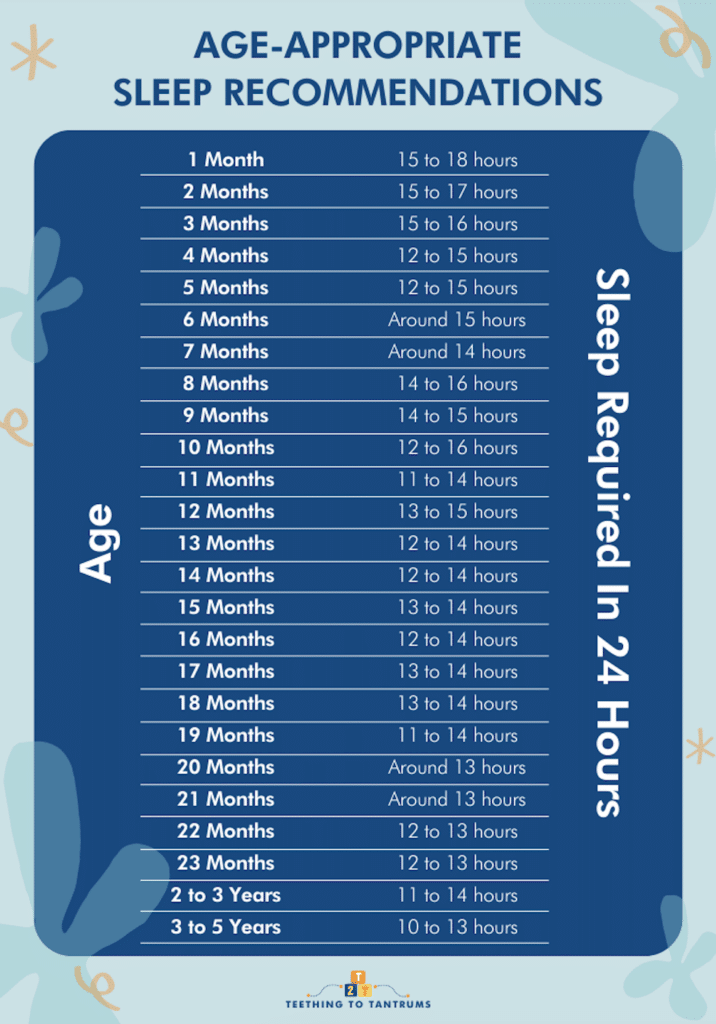Toddler screaming at bedtime? It’s one of the most difficult things for parents to deal with. Especially as we’re tired at the end of the day and our patience is running low. So how can we manage this and ultimately, stop it from happening?

Table of Contents
Strategies To Handle Your Toddler’s Bedtime Screaming
If your toddler is screaming at bedtime, it can be a frustrating experience for both you and your child. However, there are strategies you can use to help prevent or handle bedtime tantrums.
Here are some tips to try:
1. Establish A Bedtime Routine
As I am ALWAYS saying establishing a consistent bedtime routine will most definitely help your little one feel calmer and more secure at bedtime.
A typical routine should include having a bath, reading a story and singing a lullaby and you should restrict the use of screens in the run up to bedtime.
It is also important to keep the time for bed and the bedtime routine the same every night, so your toddler knows what to expect as this will help them feel more relaxed and ready for sleep.
NOTE: If your toddler is getting overtired, gradually move to an earlier bedtime by 10-15 minutes every day.
2. Cosy Sleep Environment
Make sure your child has their own bed and a comfortable sleeping environment. Keep the room cool, quiet, and dark.
As already mentioned consider using a white noise machine with the addition of blackout curtains if your child is easily disturbed by outside noises or light.
However, if your toddler struggles with night terrors or nightmares, you may find a bit of sound and light helps them feel safe and less alone.
3. Promote Independence
Encouraging your toddler to be independent can help reduce bedtime struggles. This can include letting your child choose their own pyjamas or favorite toy to sleep with.
Giving your child some control over their bedtime routine helps young children feel more in control of their environment and less likely to resist going to bed.
NOTE: If your little one has just moved from a crib to a toddler bed, perhaps have nap time in their new bed and nighttime sleep in their crib to help them adjust to the transition.
4. Help With Separation Anxiety
If your child is experiencing sleep issues due to anxiety or fear, try incorporating independent relaxation techniques such as deep breathing or visualization exercises into their bedtime routine too.
Encouraging your little one to spend time playing safely alone during the day or with other caregivers will also help conquer their separation anxiety.
5. Incorporate Exercise And Play
Regular exercise and play can help your child feel tired and ready for sleep at bedtime.
Make sure your child gets plenty of physical activity during the day, such as playing outside or going for a walk.
Daily exposure to natural light will help to regulate your toddler’s circadian rhythm and research has shown this will definitely help them to be ready for sleep when bedtime comes around!
It is also important to incorporate some quiet playtime before bed, such as coloring or playing with puzzles.
Be engaged in these activities yourself and avoid screen time in the lead-up to bedtime.
REMEMBER: Every child is different, and what works for one child may not work for another. It’s important to adapt these strategies to fit your child’s needs and personality. With time and practice, you can help your child develop healthy sleep habits and reduce bedtime struggles.
Toddler Screaming At Bedtime? Here’s Why…
If your toddler suddenly starts screaming at bedtime, it can be very alarming as you rack your brain trying to find a reason why.
However, more than likely, there are some perfectly normal developmental factors at play.
Here are the most common reasons why your toddler is screaming at bedtime:
1. Separation Anxiety
Separation anxiety is a normal developmental milestone that often happens between 6 months and 3 years of age.
It can make bedtime a difficult time for toddlers. They might scream when you leave the room, cry when put into bed or simply refuse to go to bed altogether.
To help ease separation anxiety at bedtime, try the following:
- Establish a consistent and regular bedtime routine (it will help you feel better too!).
- For children over 1 year of age offer a comfort item, like a stuffed animal or blanket.
- Reassure your child that you will be nearby and that they are safe.
- Help them to learn to be comfortable with their own company during the day by encouraging independent play and playing safely alone for short periods of time.
- Implement gentle sleep training methods such as the gradual retreat or promised return.
2. Teething
Teething can also cause sleep issues and bedtime screaming.
When your toddler is teething, they might experience pain and discomfort when they lie still and are trying to fall asleep, which can make it hard for them to drop off peacefully.
To help your toddler sleep better during teething, try the following:
- Give your child a teething toy or cold washcloth to chew on.
- Offer a pain reliever, like acetaminophen or ibuprofen, if recommended by your paediatrician.
- Play an audio tape to help take their minds off the pain.
3. Big Emotions And Temper Tantrums
Toddlers are still learning how to regulate their emotions, and bedtime can be a time when big emotions and temper tantrums come out (especially if they’ve had a busy day and are overtired)…
If your toddler is screaming at bedtime due to big emotions, try the following:
- Help your toddler identify and name their emotions acknowledging their feelings and giving them the right words to use.
- Offer a calming activity, like reading a book or singing a lullaby.
- Set clear and consistent limits around bedtime behavior. Toddlers like to know where they stand and if their routines are vague and inconsistent, they are more likely to act out.
- Follow a regular and consistent routine
- Handle transitions with patience and care. I.e. dinner time followed by quiet play followed by bath time, getting dressed, getting into bed, and finally, story time and saying good night.
- Offer 2 acceptable bedtime choices such as letting them choose which PJ’s to wear or which books to read.
- Avoid overtiredness by ensuring they have enough age-appropriate daytime sleep. Here is a handy graphic to ensure your little one is getting enough hours of sleep per day.

4. General Discomfort
If your toddler is uncomfortable, they may have trouble falling asleep. So make sure your toddler’s room is at a comfortable temperature and that they have a cosy, supportive mattress.
Ensure they are wearing appropriate sleepwear too!
Try using a white noise machine and or a night light. Consider audiobooks and ceiling projectors to help calm your toddler at bedtime and create a cosy sleep environment.
If your toddler is teething or has a cold, they may also be experiencing discomfort that is making it difficult for them to settle down.
In these cases offer comfort and or mild medication approved by your pediatrician.
White noise machines are a game-changer for your little one's sleep and having one that plays all night is a must. With a long-lasting battery, this compact and stylish white noise machine contains 21 non-stop relaxing noises, which will lull your little one to sleep night after night, no matter where you are!
5. Lack Of Routine
Toddlers thrive on routine, and a consistent bedtime routine can help them feel secure and calm.
If you don’t have a regular bedtime routine, your toddler may feel anxious and unsure about what to expect.
Establishing a predictable routine is an essential way to ensure your toddler feels more relaxed and ready for sleep, dramatically reducing the possibility of bedtime battles.
Discover How To Create Stress-Free Bedtimes & Peaceful Daytime Naps, Consistently...
Without Tears, Tantrums or Showdowns
✅ Your parenting superpower to unlock calm evenings for years to come! 😌
✅ How to craft a calm and consistent bedtime routine that will get your little one falling in love with sleep… 🛌
✅ Uncover the techniques that the famous “Norland Nannies" use so you can get your little one going to bed and staying there! 🎉
✅ The secret to ending nighttime waking… to ensure your little one is getting enough sleep to thrive and reach their full potential! ❤️
✅ A super simple trick you can use to end hyperactivity before bed … so your little one will happily go to bed when you want them to 🌟
6. Fear Of The Dark
Many toddlers develop a fear of the dark, which can make bedtime a scary experience.
To help ease your toddler’s fears, consider using a night light or leaving the door slightly open.
Offer them a favourite soft toy to sleep with, play an audiobook or calming music.
Always acknowledge their fears and check under the bed or inside cupboards to reassure them that all is safe and well.
I also like to create a monster spray to help with fears of the dark and monsters.
Simply fill a spray bottle with water and a handful of beads and sequins and spray it around the room to eliminate any hidden monsters.
You can also add a few drops of lavender, camomile or cedarwood essential oil to strengthen the illusion. This can help create a strong sleep association too.
You can also try reading a bedtime story, like Franklin in the Dark, that features a brave character who conquers their fear of the dark:
I love Franklin stories and this book is no exception. In this story, poor little Franklin discovers he's afraid of the dark.
This is particularly distressing for Franklin as he happens to be a turtle, and the darkness he fears is, of course, inside his own shell. Bravely, with shell in tow, he sets forth to seek help and in the course of his travels discovers a bird who is afraid of heights, a polar bear who is afraid of the cold, and even a hydrophobic duck. In the end, Franklin discovers that everybody is afraid of something, even his own mother, and his response to what he has learned is guaranteed to draw a smile.
7. Big Change in Daily Routine
A big change in your toddler’s routine may cause them to become upset at bedtime. Any of the following can cause them to suddenly become distressed:
- Arrival of a new sibling
- Moving house
- Starting Day Care
- Parent returning to work
- Illness or stay in hospital
If any of these are the cause you will need to address them with patience and loving understanding.
And it is even more important that you have a calm and consistent bedtime routine and that your little one is getting enough sleep.
I always find using books that address the specific issue are great ways to help toddlers understand their feelings. Like these lovely books to help with becoming a big sibling or moving house.
Some parents worry about their first child feeling left out when a new baby arrives. However, "You're The Biggest" celebrates the role of a new older sibling with sweet stories and charming pictures to make your child feel special.
It draws them into the excitement of becoming a big brother or sister and addresses some of the normal emotions they are likely to have to deal with.
- Affirming message for new older siblings
- Engaging illustrations
- Keepsake quality
- Includes a gift for the new baby
- Encourages positive sibling relationships
- Easy-to-read and understand
- Suitable for children under 4 years old
8. Overtiredness
If your toddler is overtired they are more likely to become overemotional at bedtime.
When your little one is overtired their bodies naturally produce cortisol and adrenalin to cope.
Unfortunately, these hormones have the effect of making it very difficult for children to fall asleep. That is why ensuring your toddler has enough daytime sleep is so important.
As I always say…
Sleep breeds sleep and your little one is more likely to settle well at bedtime if they have had enough daytime sleep.
9. Illness
If your toddler is sick, they may be feeling irritable and unable to sleep.
A sudden onset of screaming at bedtime could be caused by an illness, like a cold or especially an ear infection.
If your toddler is just feeling under the weather, they may not want to be alone. They may need extra cuddles and reassurance to help them feel better.
But a word of warning, keep to your established routines as much as possible or you’ll be faced with undoing bad habits once they are better!
REMEMBER: These factors can play a big role in why your toddler is screaming at bedtime. By understanding these sleep troubles and responding with empathy and consistency, you can help your child develop healthy sleep habits and feel more secure at bedtime.
Looking to get your little one to sleep quickly and effortlessly through a healthy nighttime routine? Check out my Bedtime and Nap Cheat Sheet and master the art of making daytime naps and bedtimes as seamless as possible.
A bedtime & nap cheat sheet so good your little one will ask you to put them to bed...
Laura Williams "This is a life saver! I'm so glad I downloaded your bedtime & nap cheat sheet. My little one actually asked me to put him to bed last night! Unbelievable! Thank you so much!"
Click Here For The FREE Cheat Sheet
Frequently Asked Questions About Toddlers Screaming At Bedtime
Looking for more information about toddler screaming at bedtime? Here are the answers to the most common questions to ensure you know everything there is to know about this challenging aspect of parenting.
Is A Screaming Toddler The Same As Tantrums At Bedtime?
Screaming can often link with crying. Tantrums are born more out of frustration. To learn more about toddler bedtime tantrums, read these posts:
- 2 Year Old Tantrums At Bedtime
- 3 Year Old Toddler Bedtime Tantrums
- 4 Year Old Bedtime Tantrums
- 5 Year Old Bedtime Tantrums
How Can I Calm My Toddler Down At Bedtime?
A great way to calm your toddler down at bedtime is to establish regular afternoon naps and have a consistent bedtime routine.
You can also try using a calming essential oil like lavender or chamomile to help soothe your toddler.
Remember to be patient and give your child plenty of time to wind down before bed. A quiet lead up to bedtime with calming play activities a warm bath and a bedtime story or two are key.
What Are Some Common Reasons For Toddler Bedtime Meltdowns?
Toddler bedtime meltdowns can happen for many reasons, including being overtired, feeling anxious or scared, experiencing a rushed or inconsistent bedtime routine or not wanting to be separated from a parent or caregiver.
It’s important to try to identify the cause of the meltdown by using the guidance outlined above so you can address it appropriately.
If your toddler is yelling at you, watch my video for further advice:
How Can I Address My Toddler’s Fear Of Bedtime?
If your toddler is afraid of bedtime, try to create a calm and soothing environment in their bedroom. You can also try using a nightlight or playing soft music to help your child feel more comfortable.
Using books that address nighttime fears is also a great way to address any fears your toddler may be experiencing. It is always important to talk to your child about their fears and reassure them that they are safe.
Finding the right night light for your child can be quite a task. You want something safe, comforting, and practical. The Cozy Starry Night Light ticks these boxes, with eye-friendly warm lighting and an easy-to-use dimmer.
Its gentle glow makes it the best night light for feeding baby, diaper changes, or comforting your little one back to sleep.
As your baby grows the Cozy Starry Night Light's starry sky projection can provide comfort and gentle quiet time stimulation. Its soft lighting ensures a dreamy, peaceful environment, supporting your baby’s natural sleep cycle.
It really is a fantastic nightlight (at a very reasonable price!)
- Eye-friendly warm lighting with adjustable brightness.
- Includes a timer function for convenience.
- Projects a starry sky that is soothing for little ones.
- Rechargeable battery, so it's very portable.
- A USB adapter is not included for charging.
- The star projector is static without motion (however, this is ideal for very young babies and toddlers).
- Battery life varies based on the brightness settings.
What Are Some Tips For Dealing With A Toddler Who Cries Until They Throw Up At Bedtime?
If your toddler cries until they throw up at bedtime, it’s important to stay calm and try to comfort them. You can try holding your child, singing a lullaby, or reading a book.
If the behaviour continues, it may be helpful to talk to your child’s paediatrician or behavioural physchologist.
What Are Some Strategies For Handling A Toddler Who Screams For One Parent At Bedtime?
I have personal experience with this as my son only wanted me to put him to bed. His Dad was not enough at nighttime!
So, if your toddler screams for one parent at bedtime, it’s important to try to remain calm and consistent. You can try alternating who puts your child to bed each night or having both parents present during the bedtime routine.
It is also important to reassure your child that both parents love them and that they are safe.
Sometimes you just have to ride this one out.
Why Is My 2 Year Old Suddenly Hysterical At Bedtime?
There are many reasons why a 2 year old may suddenly become hysterical or scream at bedtime, including feeling overtired, worried about night terrors or anxious. Has there been a big change in their life recently?
It’s important to try to identify the cause of the behaviour and then you can address it accordingly.
As always ensuring you have a consistent bedtime routine can help your child feel more secure.
How Long Do You Let A Toddler Cry At Bedtime?
There is no one-size-fits-all answer to this question, as every child is different.
However, I recommend waiting no longer than 5-10 minutes before going in to comfort your child if they are crying at bedtime.
Implementing a gentle sleep training method such as the gradual retreat or promised return can also help with your child’s anxiety at bedtime.
If your toddler is very distressed you need to comfort them so they don’t hurt themselves or become too overwrought. As a parent, you should do what feels right for you and your child.
Might A Sleep Regression Be To Blame?
Sometimes despite your best efforts, a sleep regression can form because of the disrupted sleep and routines. To learn more about sleep regressions and sleep deprivation, read these posts:
Need More Parenting Help?
- Download our FREE Bedtime & Nap Sleep Cheat Sheet. It’s a free, easy-to-use and proven formula designed for parents of 0-5 year olds to master the art of consistently undisturbed and restful sleep without the yelling, nagging or exhausting long-winded evenings.
- Check out our Parenting Toolbox. You’ll get access to expertly-chosen products that you can guarantee are the best for your little one and your wallet.
- Are you looking for personalized guidance to navigate the challenges of parenting? I offer 1-on-1 consultations to bring you tailored strategies and actionable advice to help support your child's growth and well-being with confidence.

A bedtime & nap cheat sheet so good your little one will ask you to put them to bed...
Laura Williams "This is a life saver! I'm so glad I downloaded your bedtime & nap cheat sheet. My little one actually asked me to put him to bed last night! Unbelievable! Thank you so much!"
Click Here For The FREE Cheat Sheet








